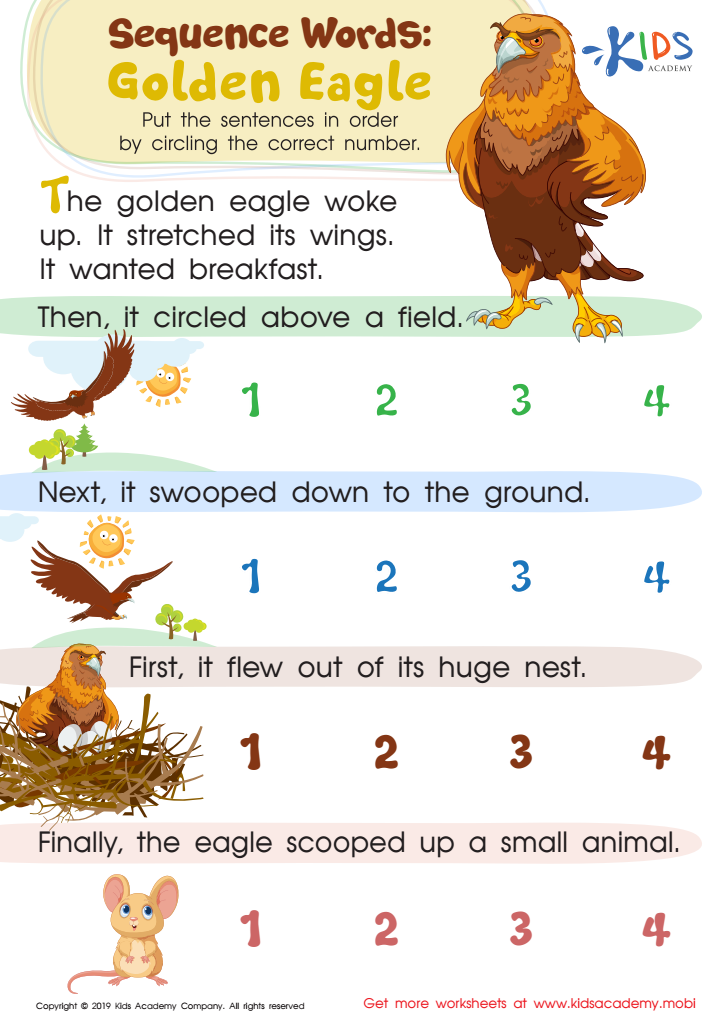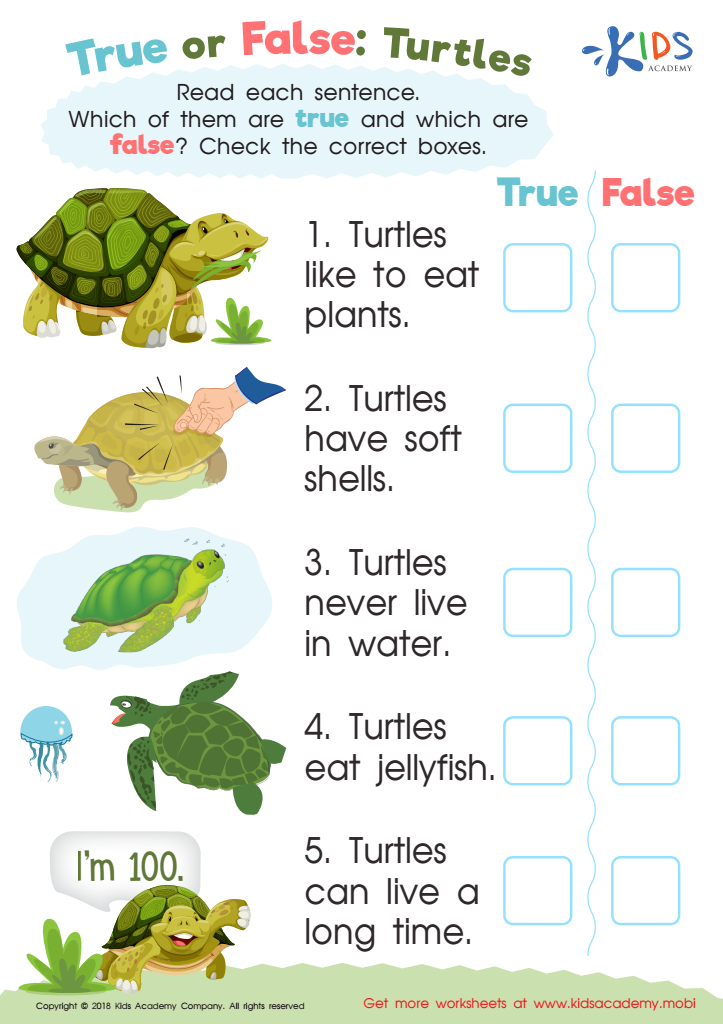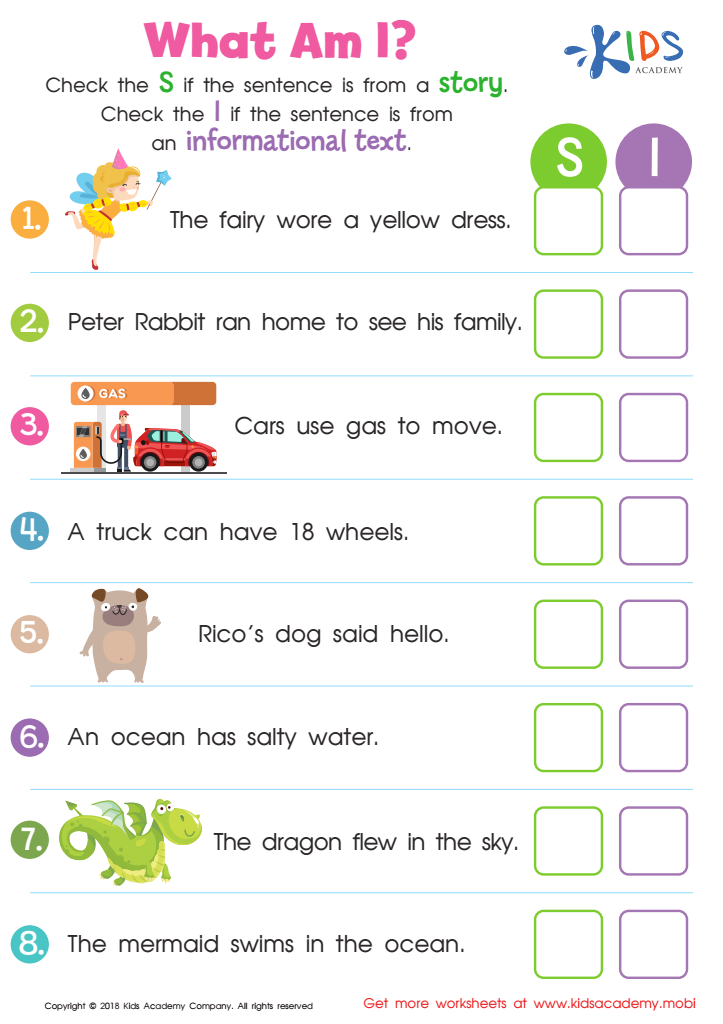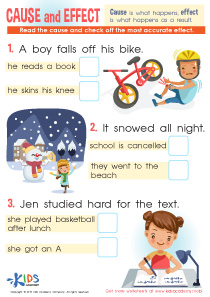Logical Reasoning Normal Reading Non-Fiction Worksheets for Ages 5-8
3 filtered results
-
From - To
Explore our engaging "Logical Reasoning Normal Reading Non-Fiction Worksheets" designed specifically for children aged 5-8. These worksheets blend comprehension skills with logical reasoning, promoting critical thinking through captivating non-fiction texts. Perfect for early grade teachers and parents, our resources foster curiosity about the world while enhancing reading abilities. Each worksheet encourages students to analyze facts, draw conclusions, and Solve problems in a fun, interactive way. Help young learners develop essential cognitive skills and confidence in their reading a journey with our thoughtfully crafted materials. Unlock the potential of your child with creative exercises that make learning both effective and enjoyable!


Sequence Word Eagle Worksheet


True or False: Turtles Worksheet


What Am I? Worksheet
Logical reasoning in non-fiction reading material is crucial for children aged 5-8, and it’s important for both parents and teachers to recognize its significance. At this developmental stage, children are beginning to build critical thinking skills, and engaging with logical reasoning helps strengthen their ability to analyze information, draw conclusions, and make informed decisions.
Non-fiction books introduce young readers to real-world concepts and factual information, allowing them to connect with the world around them. By focusing on logical reasoning within this context, children learn to identify patterns, understand cause and effect, and relate different pieces of information. This fosters curiosity and encourages them to ask questions about what they read, ultimately enhancing their comprehension and retention of knowledge.
Moreover, these skills are foundational for academic success and everyday problem-solving. As children articulate and justify their reasoning, they also develop communication skills and confidence in sharing their thoughts. Parents and teachers, therefore, play a vital role by providing access to high-quality non-fiction resources and engaging in discussions that stimulate logical thinking. By nurturing these skills early on, we equip children for future learning and life experiences, contributing to their overall cognitive and emotional development.
 Assign to My Students
Assign to My Students
















